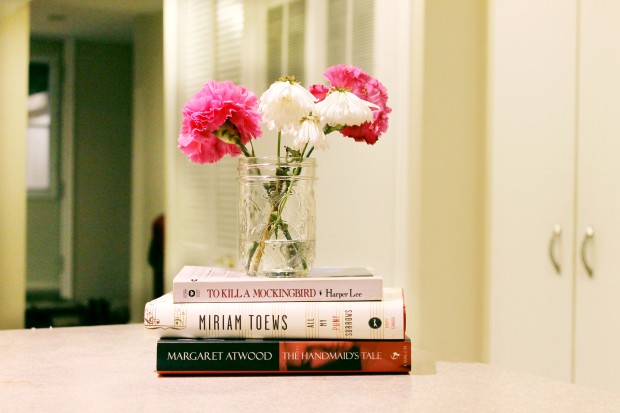Over the weekend, I read Scout, Atticus & Boo by Mary McDonagh Murphy. It appealed to me in a similar way that I’m sure So We Read On by Maureen Corrigan appeals to me: it attempts to figure out why a book like To Kill a Mockingbird is still so influential over 50 years after its publication. In a series of interviews, Scout, Atticus & Boo is a celebration of a classic American novel.
But while the premise appealed to me, I felt like Part 1 (the author’s introduction) gave away a little too much of the content that was to come in Part 2 (the interviewee’s monologues). That being said, I loved reading everyone’s experience with the book. It made me want to ask you: when was the first time you read To Kill a Mockingbird?
I read To Kill a Mockingbird in high school (like many others) and remember falling in love with it. It’s definitely one of those high school reads that is so compelling that it doesn’t feel like required reading. It was so cool discussing it with my classmates; it was such a bonding experience. Re-reading it last year was even better; I felt like I could appreciate Atticus so much more and got just as swept up with the story as I did the first time. This is definitely a book that’s meant to be read over and over again. (Aside: I thought it was so weird to read this book in light of the Go Set a Watchman announcement; suddenly, To Kill a Mockingbird is no longer Harper Lee’s “first and only book.” I wonder how all the interviewees who were hoping for a second book feel about the upcoming book? Also, as I was reading, I realized that at some point, the fact that Harper Lee has two books will be just common knowledge instead of a revolutionary thing. Crazy!)
Anyway, I digress. Have you read To Kill a Mockingbird? When did you read it for the first time? Did you enjoy it?



